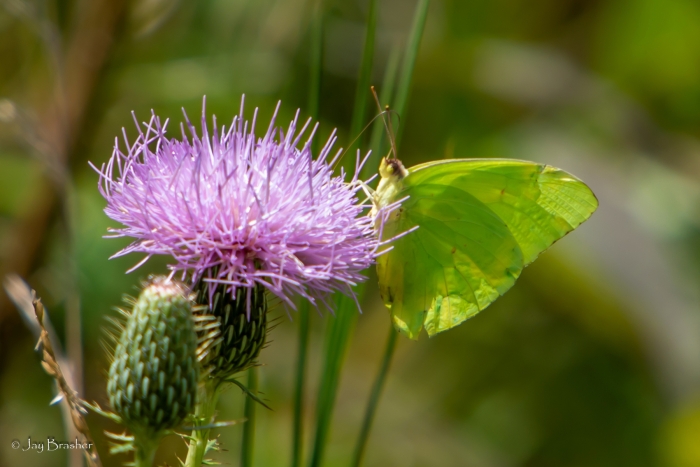Field Thistle
(Cirsium discolor)
Field Thistle (Cirsium discolor)
/
/

© Jay Brasher
CC BY 4.0
Image By:
© Jay Brasher
Recorded By:
Copyright:
CC BY 4.0
Copyright Notice:
Photo by: © Jay Brasher | License Type: CC BY 4.0 | License URL: http://creativecommons.org/licenses/by/4.0/ | Uploader: jbrasher | Publisher: iNaturalist |






















Estimated Native Range
Summary
Cirsium discolor, commonly known as Field Thistle, is a biennial or perennial herb native to a variety of habitats including moist meadows, prairies, open woodlands, and along streams and rivers in eastern and central North America. It can reach up to 79 inches in height and is characterized by its spiny, deeply lobed leaves and large, fluffy flower heads that bloom from late summer to early fall. The flowers, predominantly purple, are highly attractive to pollinators such as butterflies and bees, which makes it a valuable plant for supporting biodiversity.
Field Thistle is appreciated in cultivation for its role in pollinator gardens and naturalized areas, where it provides essential resources for wildlife. It thrives in full sun to part shade and prefers moist, well-drained soils, but can tolerate a range of conditions including occasional wetness. While it is not typically used in formal garden settings due to its spiny texture and self-seeding habit, it is excellent for restoration projects and naturalistic plantings. Gardeners should be aware that Field Thistle can spread aggressively if not managed, and its spines can make handling difficult.CC BY-SA 4.0
Field Thistle is appreciated in cultivation for its role in pollinator gardens and naturalized areas, where it provides essential resources for wildlife. It thrives in full sun to part shade and prefers moist, well-drained soils, but can tolerate a range of conditions including occasional wetness. While it is not typically used in formal garden settings due to its spiny texture and self-seeding habit, it is excellent for restoration projects and naturalistic plantings. Gardeners should be aware that Field Thistle can spread aggressively if not managed, and its spines can make handling difficult.CC BY-SA 4.0
Plant Description
- Plant Type: Herb
- Height: 3-10 feet
- Width: 1-2 feet
- Growth Rate: Moderate
- Flower Color: Pink, Purple
- Flowering Season: Summer, Fall
- Leaf Retention: Deciduous
Growth Requirements
- Sun: Full Sun, Part Shade
- Water: Medium, High
- Drainage: Fast, Medium, Slow
Common Uses
Bird Garden, Butterfly Garden, Low Maintenance
Natural Habitat
Moist meadows, prairies, open woodlands, and along streams and rivers in eastern and central North America
Other Names
Common Names: Intermediate Thistle, Chardon Discolore, Pasture Thistle
Scientific Names: , Cirsium discolor, Carduus discolor, Cirsium altissimum f. discolor, Cirsium altissimum subsp. discolor, Cirsium altissimum var. discolor, Cirsium discolor f. albiflorum, Cirsium discolor f. discolor, Cnicus altissimus f. albiflora, Cnicus altissimus var. discolor
GBIF Accepted Name: